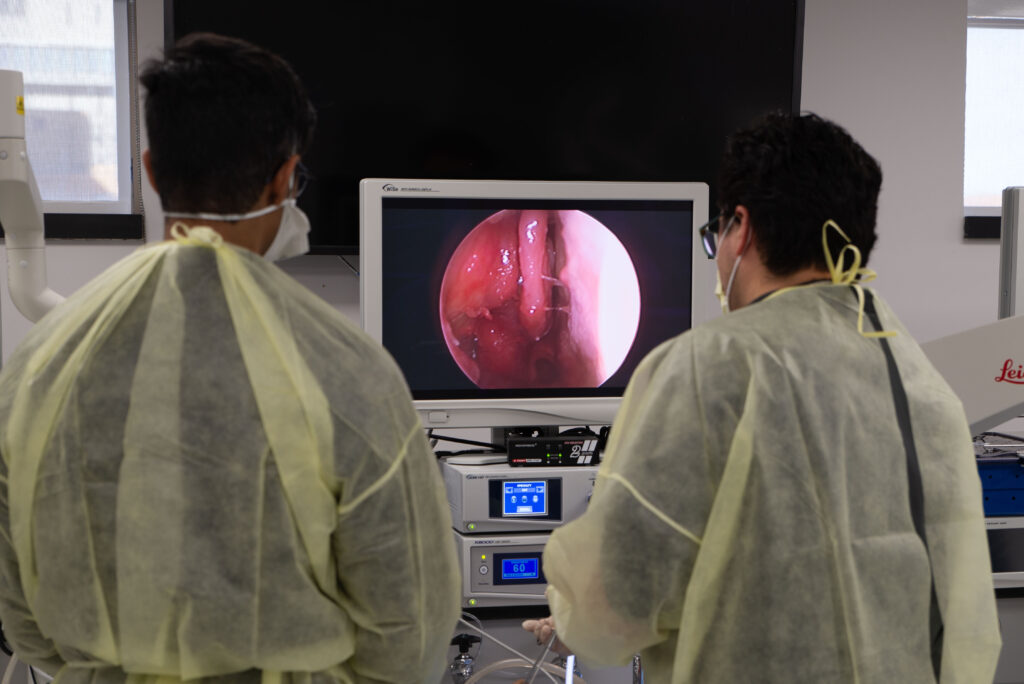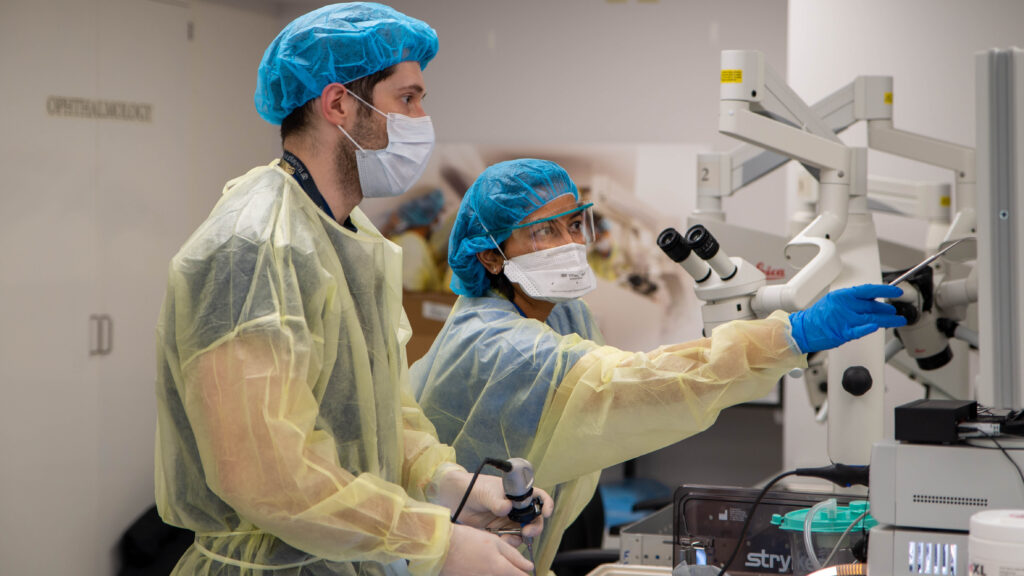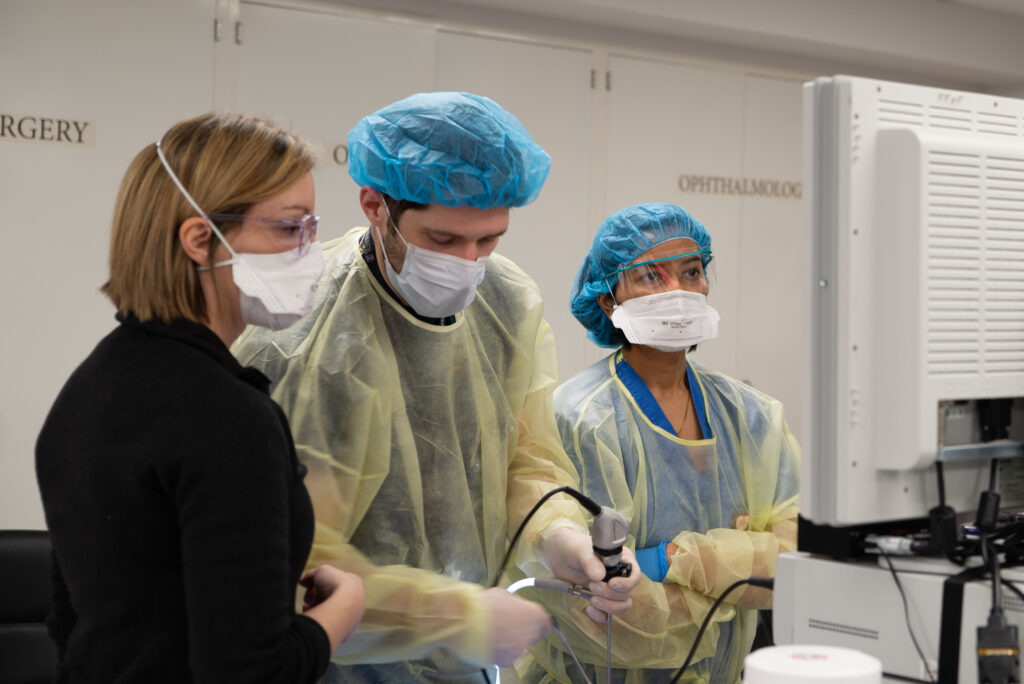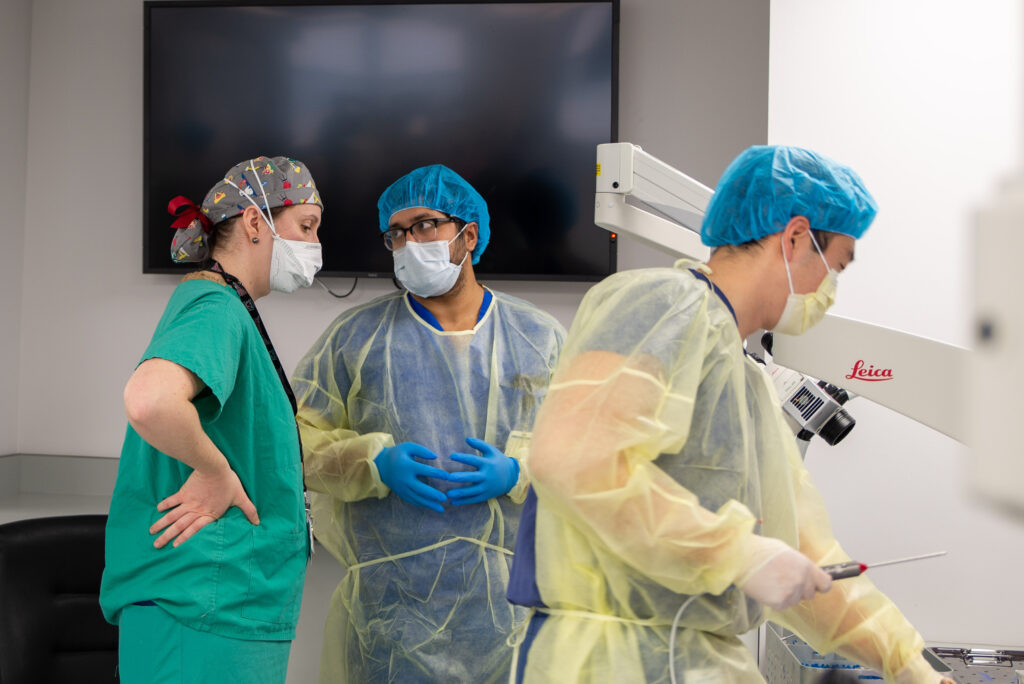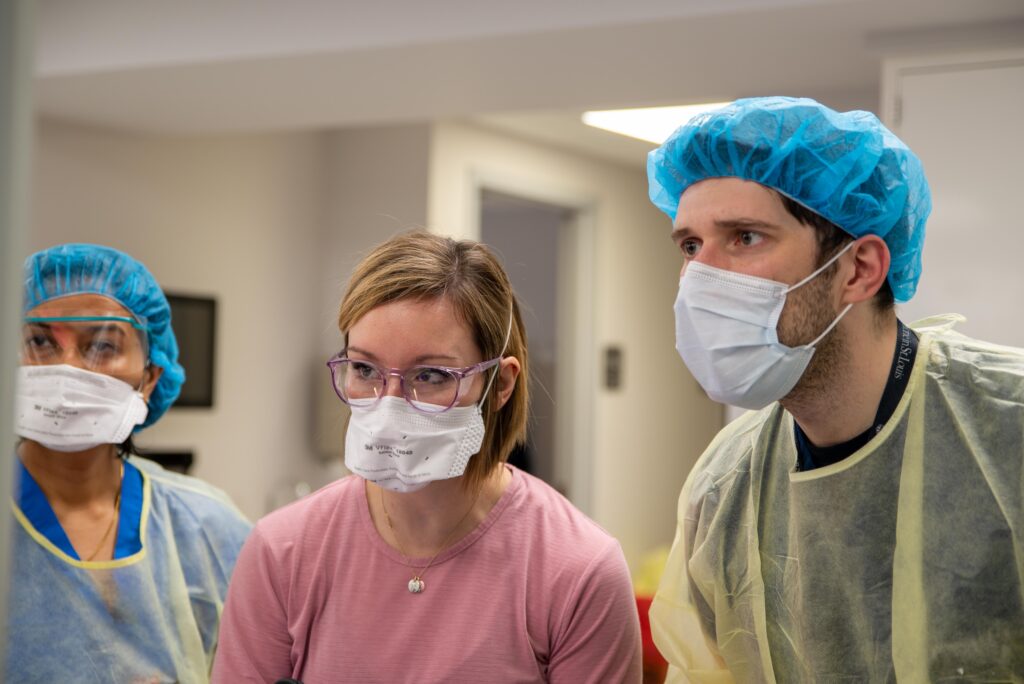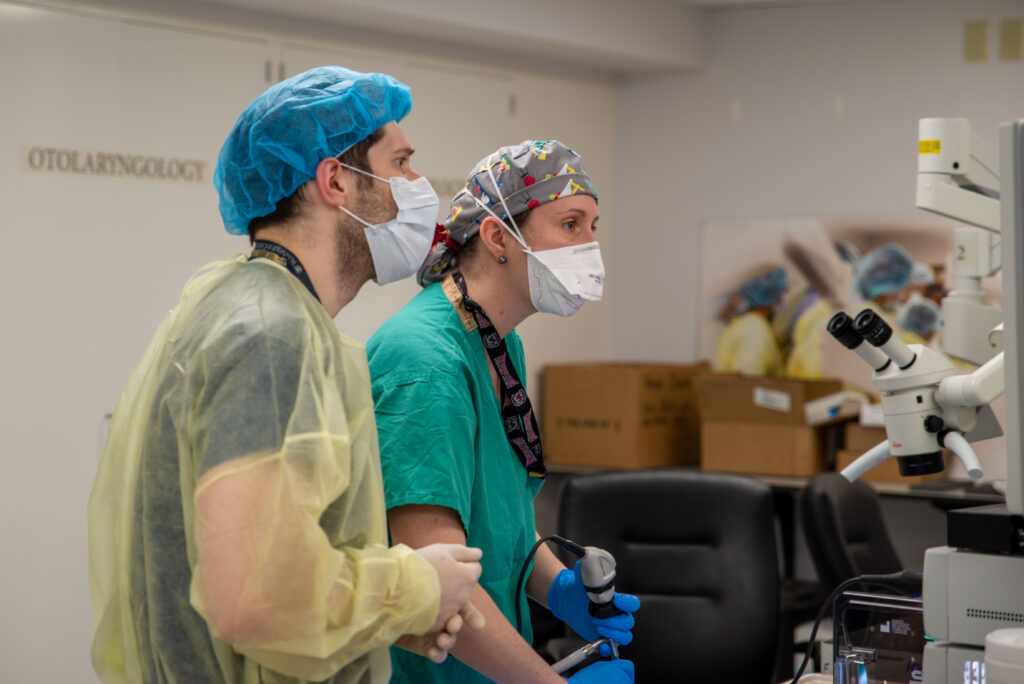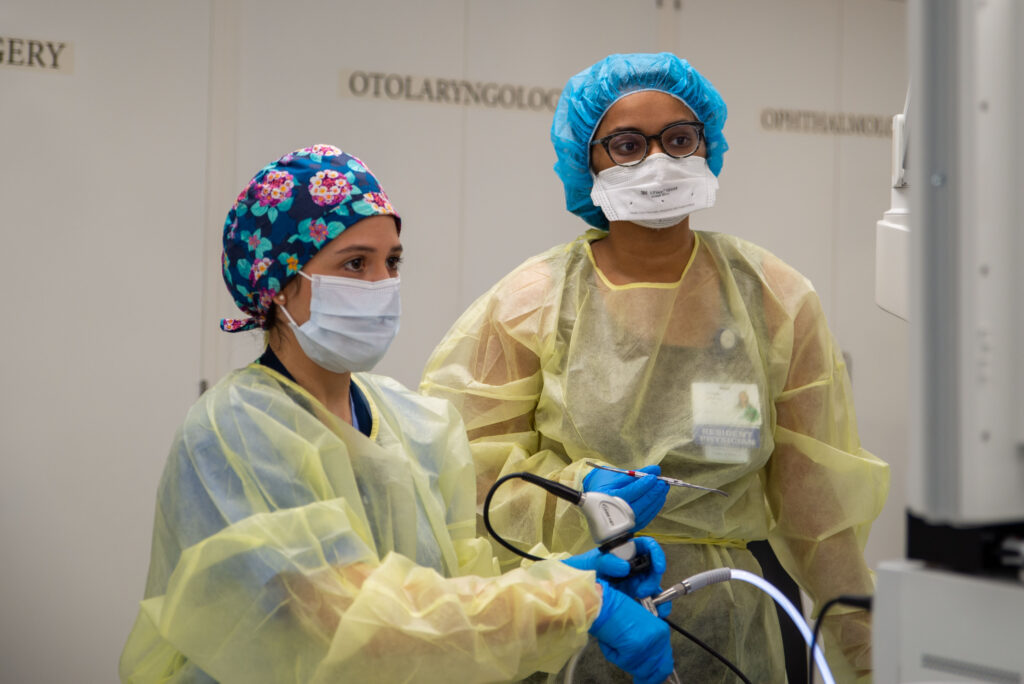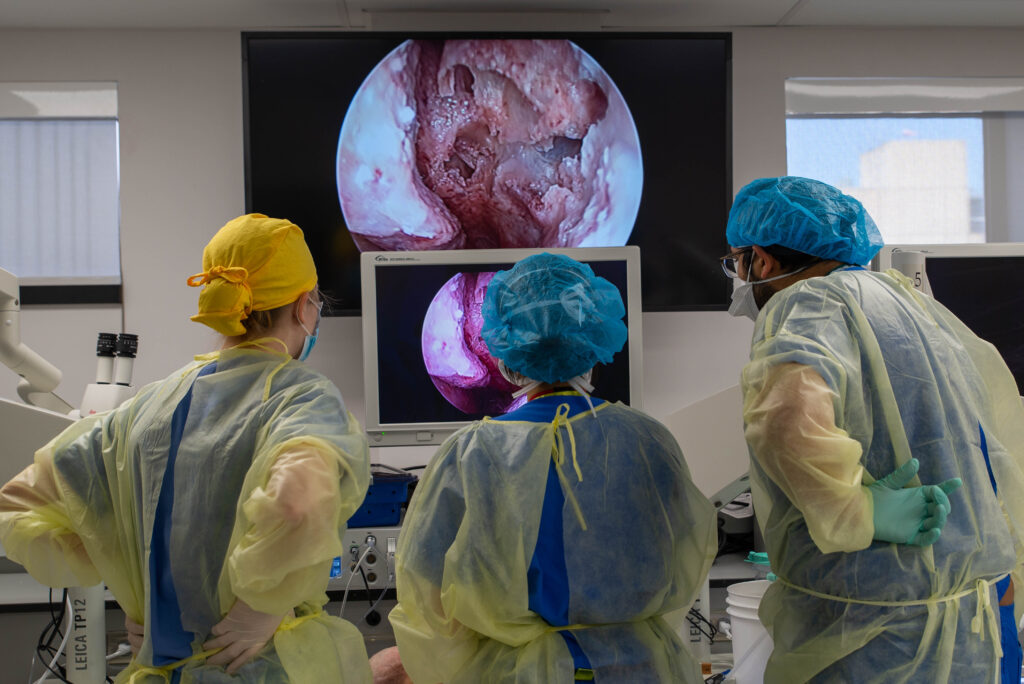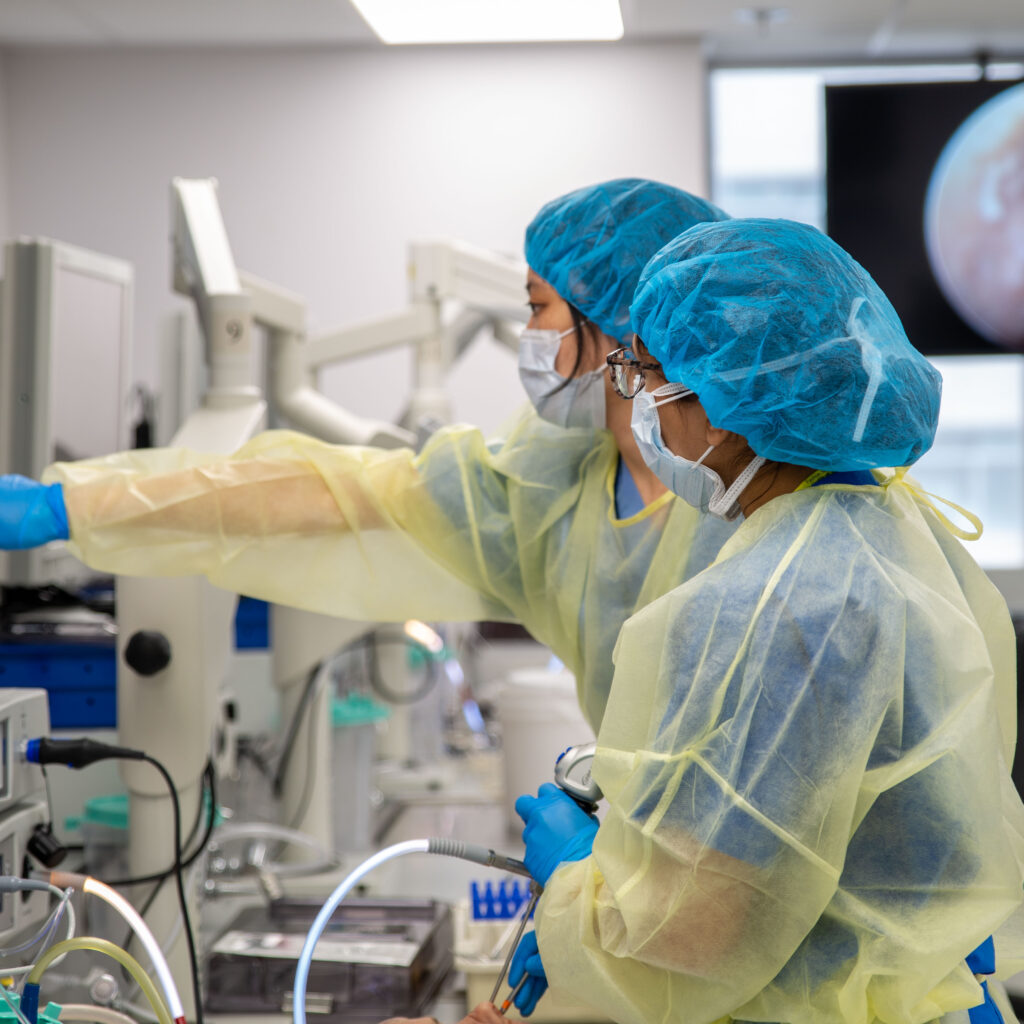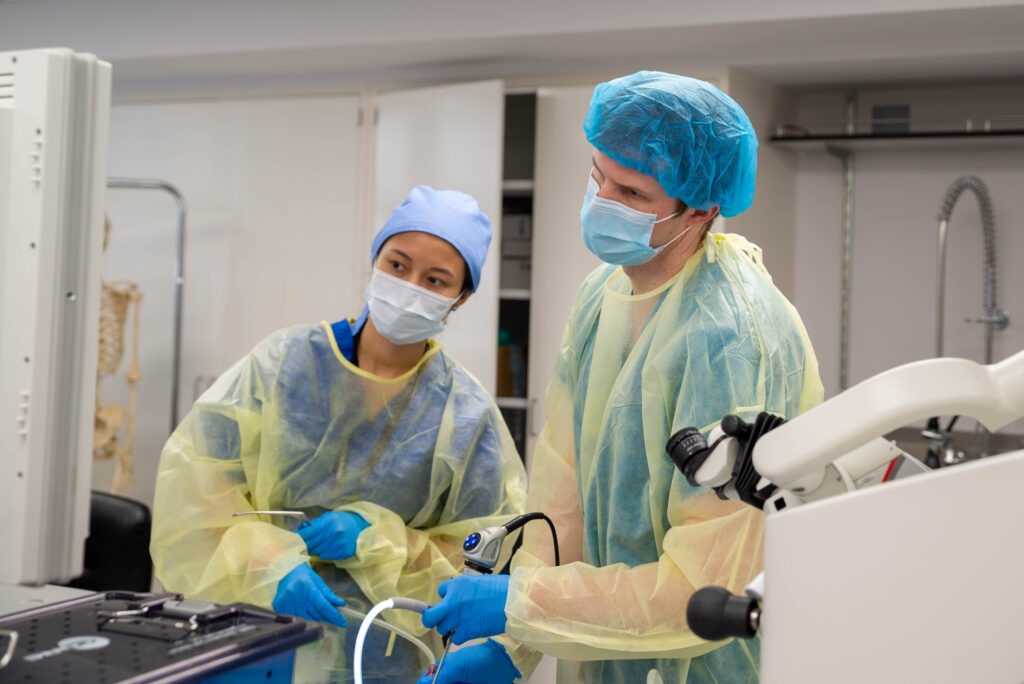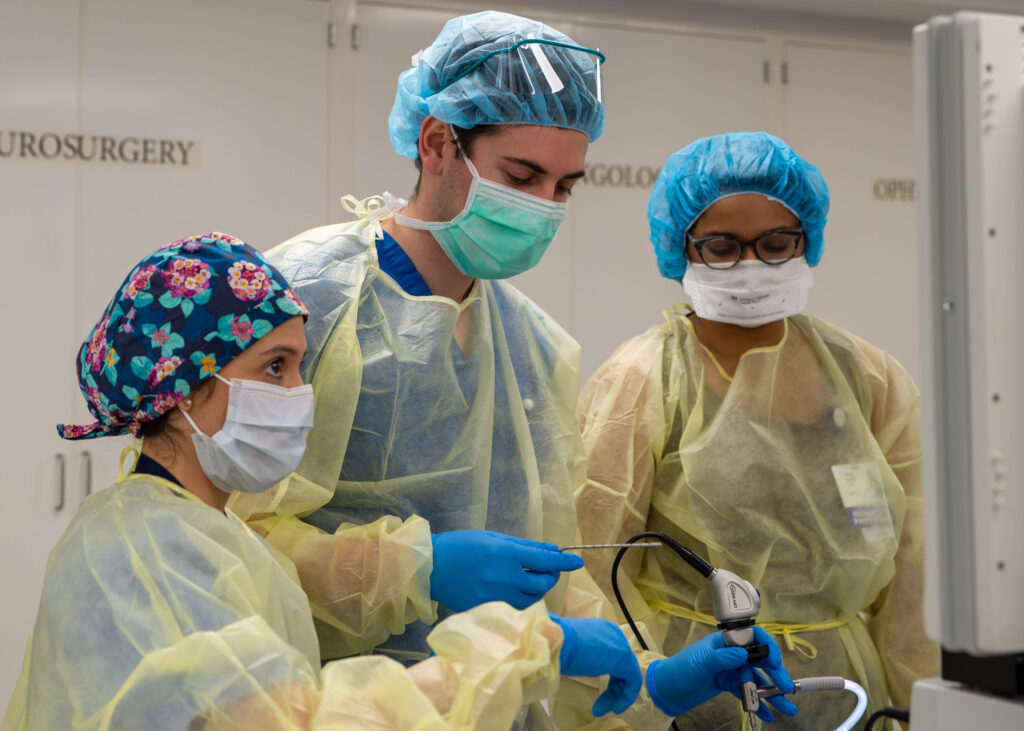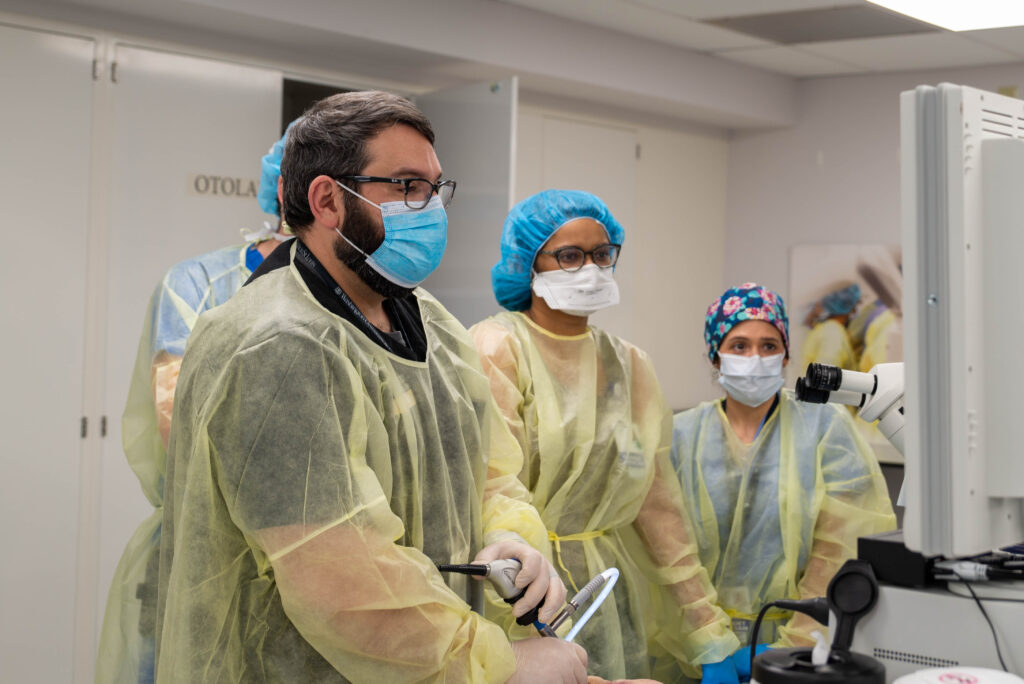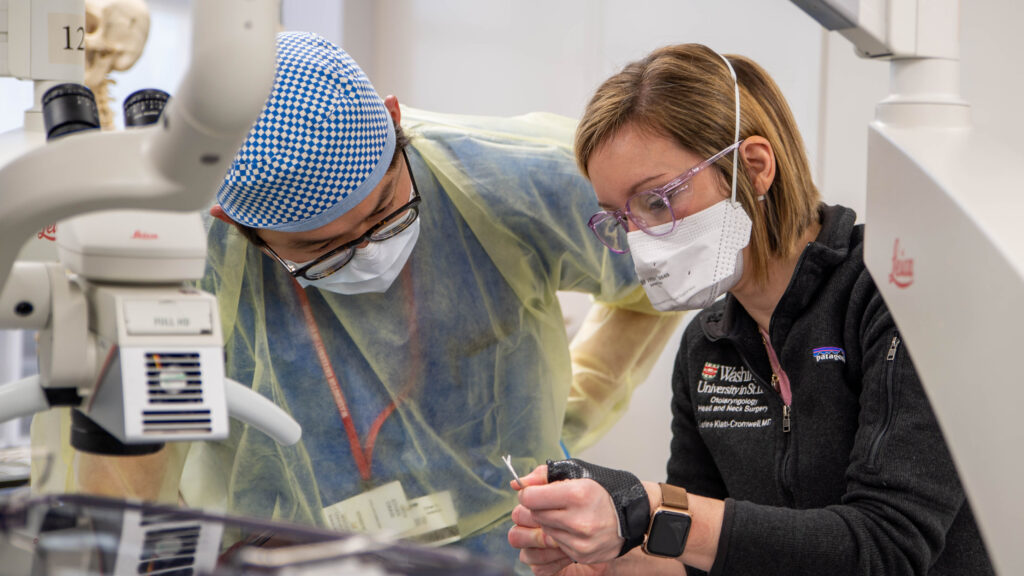With the benefit of a state-of-the-art simulation lab, Department of Otolaryngology residents recently honed their surgical skills as they learned the breadth and depth of rhinology and anterior skull base surgery.
The hands-on rhinology dissection course is now part of the core curriculum in rhinology, taught by John Schneider, MD, Cristine Klatt-Cromwell, MD, and Nyssa Farrell, MD.
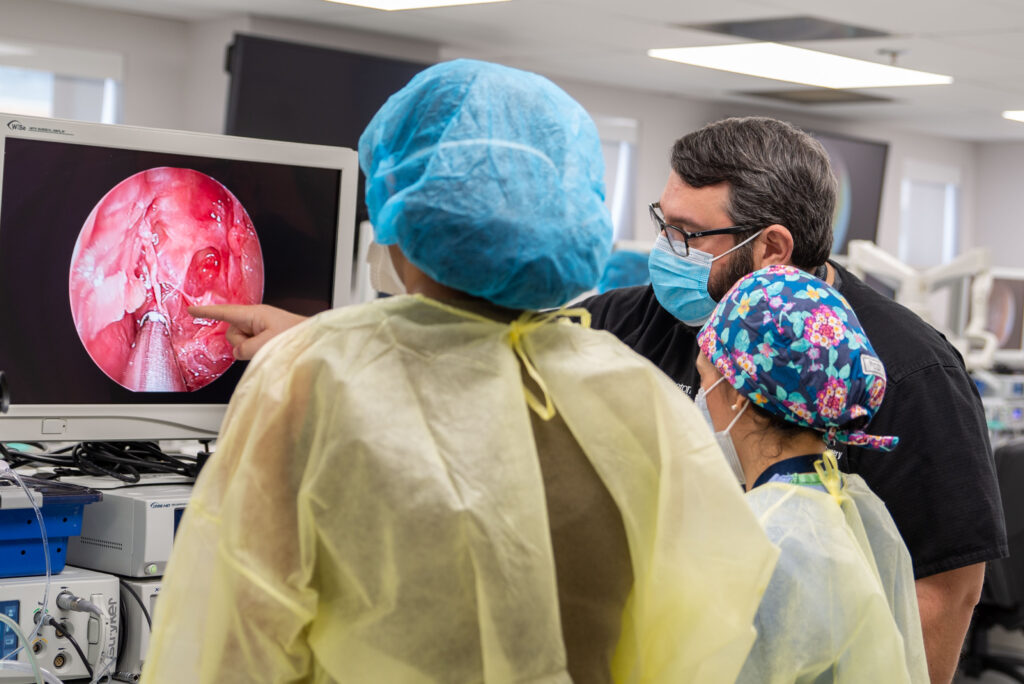
The course is designed to teach junior residents the basics of the anatomy while giving them the endoscopic skill set necessary for high quality patient care, according to Dr. Schneider. The course also gives senior residents a dedicated time to build upon their clinical experiences in a safe environment while applying their knowledge and teaching junior residents.
The course covers everything from basic septal surgery to complex orbital and skull base procedures.
“Teaching with cadaveric specimens is valuable for physician training,” said Schneider. “It best simulates the actual clinical experience. As such, we are very appreciative of the patients and families who support resident learning through their donations.”
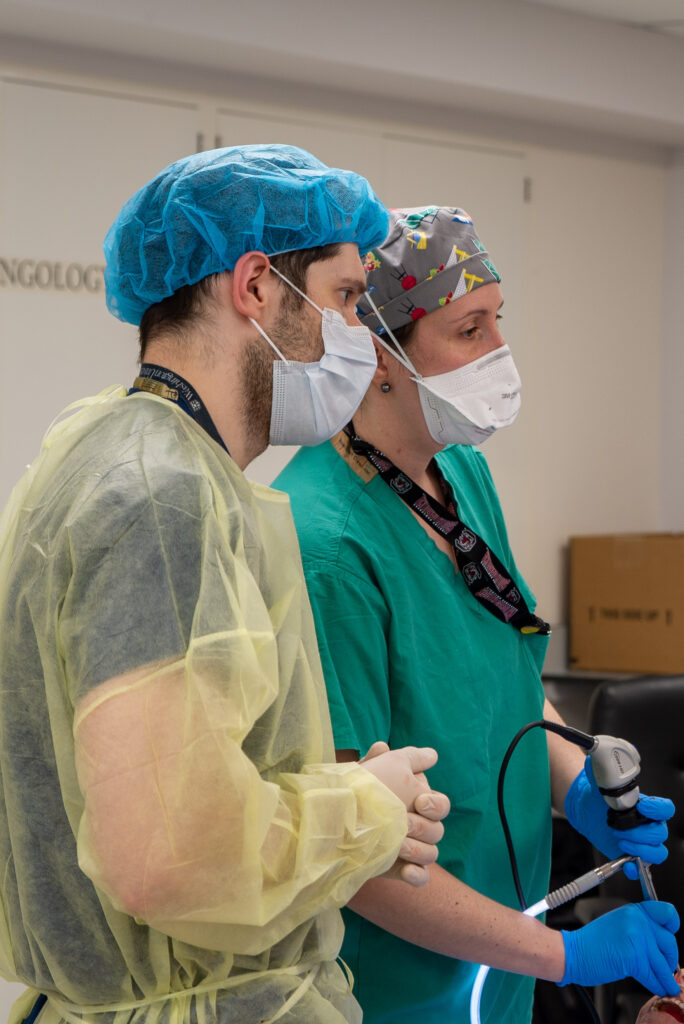
To achieve proper social distancing, the residents were divided into two groups, and dissected on consecutive Wednesday mornings while other residents reviewed case studies with faculty mentors.
The opportunity and the quality of the event were not lost on resident trainees. All enjoyed the experience and found it beneficial to be able to practice advanced surgical procedures in no risk setting.
“The rhinology dissection course was a great way to gain hands-on experience performing endoscopic sinus surgery with guidance from our rhinology attendings and the autonomy to perform cadaver dissection on fresh specimens,” said Jake Lee, MD, a PGY3 resident.
Resident Ricardo Ramirez, MD, agreed: “The simulation lab is an excellent resource that helps build confidence with microsurgical and endoscopic surgery skills. The lab gives me the freedom to push myself and explore my limits in a low-stakes environment.”
Resident Theresa Tharakan, MD, thought the simulation and tools were very similar to the experience in the operating room and looks forward to attending the course again next year.
“I enjoyed practicing my technical skills while doing a procedure from start to finish in a low stress environment,” she said. “I appreciated the opportunity to take a look at anatomy that I wouldn’t normally get to dissect out in a routine operating room case.”
